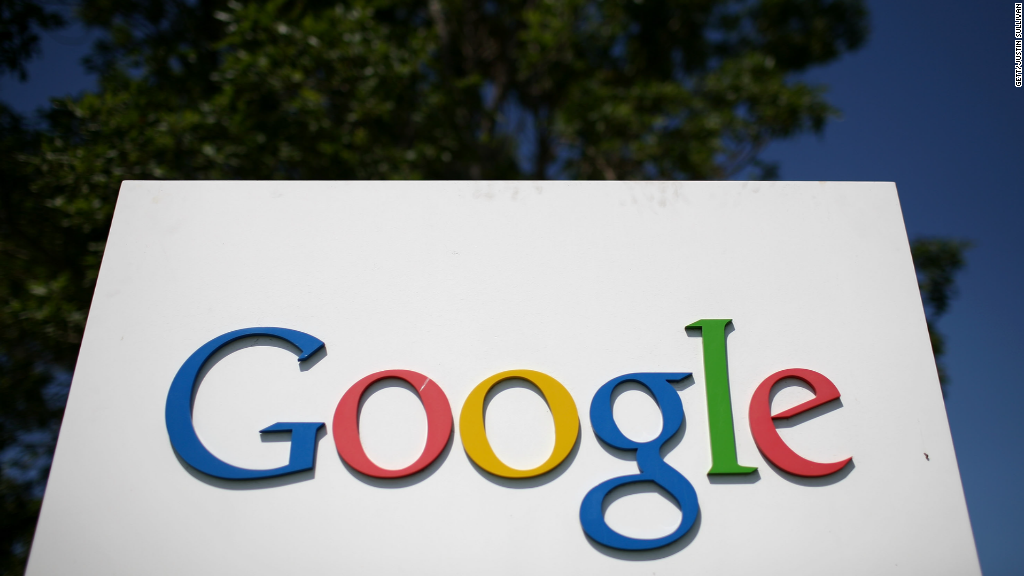
Imagine one day buying an Android smartphone not through Verizon, AT&T, Sprint or T-Mobile -- but with Google Wireless. That day could be coming soon.
Google (GOOGL) will start selling cell phone service along with its Android phones, according to multiple news reports. This has been a long time coming.
For years, Google has been assembling just about all the pieces it needs to become a mobile provider.
The search giant already makes the most-used mobile software on the planet, it designs and sells phones online, and it has become an Internet service provider with its Google Fiber initiative. It even has its own VoIP phone service called Google Voice, which allows people to get a Google phone number and call people through Gmail or Hangouts over Wi-Fi.
The missing link has been the cell towers needed to build out a nationwide network.
Rather than spending the tens of billions of dollars it would cost to create a wireless network, Google reportedly will carry its service over Sprint (S) and T-Mobile's (TMUS) networks. Google declined to comment.
Google is expected to pay those carriers just $2 per gigabyte, according to Macquarie Securities analyst Kevin Smithen. That means Google could choose to provide super-cheap service that gives Verizon (VZ) and AT&T (T) something to worry about.
Related: T-Mobile rejects half of its customers because of bad credit
Adding Google to an already competitive field that is in the middle of a major price war isn't likely to make the big carriers very happy -- that's why smaller carriers Sprint and T-Mobile are helping Google.
But T-Mobile and Sprint, in particular, are being cautious about the deal. Sprint worked a usage cap into its contract with Google that would allow the wireless company to renegotiate its deal if Google signs up a ton of customers, according to the Wall Street Journal.
That could happen. In 2018, Smithen believes Google will pay Sprint $750 million and T-Mobile $250 million for its service. That means even if Google chooses to break even, it could sell $1 billion in wireless services just three years from now.
But the chances of Google surpassing any one of the Big Four wireless carriers is practically nil. Existing carriers don't want wireless service to become a commodity. Short of building out its own wireless network, Google will have to go through one of the Big Four to get national coverage.
Still, the plan makes sense for Google.
Google makes money on Android by licensing the software to smartphone makers and by driving customers to use its apps and search services. Rather than relying on wireless companies to provide service, Google Wireless would give the search company the ability to deal directly with its customers.
There have already been a few skirmishes between Google and the cell phone companies that threaten Google's business. Over the past few years, Verizon has banned Google's Wallet app and made Microsoft's Bing the default search engine in some of its Android phones. Also, Google has spoken out against the data caps AT&T and Verizon put on customers, as well as T-Mobile's slowing of customers' speeds once they reach a certain limit.
Google is hardly the first to try its selling wireless service. Best Buy (BBY), Staples (SPLS) and Wal-Mart (WMT)all offer wireless plans to their customers. LightSquared, a failed wholesale 4G carrier, tried to become the backbone for so-called mobile virtual network operators around the country. (The FCC determined that its spectrum interfered with GPS signals, and it ultimately went bankrupt).
If successful, Google's plan could pave the way for Apple (AAPL) to sell its own wireless service with every iPhone. And Facebook (FB) and other companies with a vested interest in connecting people to the Internet could get involved too.
But there's a lot of risk associated with being a wireless carrier too. When service inevitably goes down or connections fail, customers will blame Google -- not Sprint or T-Mobile -- for the disruptions.

